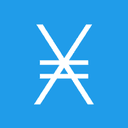CFTC Scraps Outdated Crypto Rules, Signals Fresh Momentum Ahead
U.S. crypto regulation is pivoting fast as the CFTC scraps legacy guidance, signaling a friendlier, clearer framework that could unlock broader market access, reduce compliance friction and accelerate digital asset integration across American financial markets.

Ripple Closes Rail Acquisition to offer Most Comprehensive End-to-End Stablecoin Payments Solution
Ripple finalized its Rail acquisition, advancing Ripple Payments into a unified, compliant stablecoin platform designed to streamline global B2B money movement, expand enterprise adoption, and deepen real-world utility across digital and fiat rails.

Historic Milestone: Tokenized Securities Move Closer to Wall Street Core as DTCC Gains SEC Clearance
Wall Street’s market infrastructure edged closer to tokenization after DTCC secured SEC no-action clearance, enabling tokenized securities with full legal protections and custody standards, signaling regulatory comfort and accelerating institutional adoption across U.S. capital markets.



